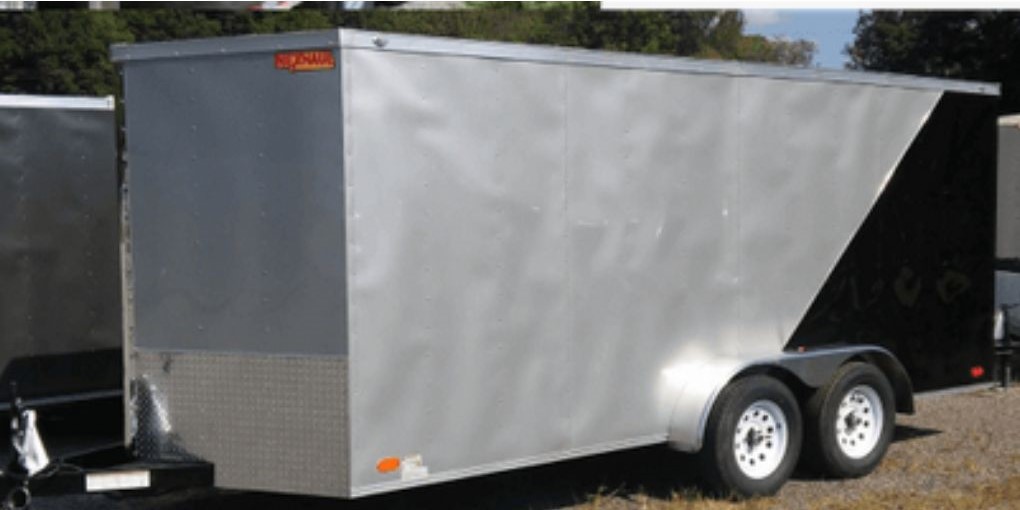A well-packed utility trailer can make all the difference on a camping trip. Whether you’re heading into the mountains or setting up by a lake, organizing your gear properly ensures a smoother experience. A poorly loaded trailer can lead to shifting cargo, damaged equipment, and even road hazards. But with the right approach, you can safely transport everything you need while making unpacking at the campsite a breeze.
Choosing the Right Utility Trailer
Before loading up, make sure your trailer is suited for the job. If you’re in the market for one, checking out utility trailers for sale in VA can give you options designed for camping and outdoor use. Look for features like:
- Size and Load Capacity – Ensure the trailer is large enough to fit all your gear but not too heavy for your towing vehicle.
- Tie-Down Points – Built-in anchor points help secure items properly.
- Weather Protection – If you’re hauling sensitive gear, consider an enclosed trailer or a weather-resistant tarp.
- Ramp or Gate Access – This makes loading and unloading much easier, especially for bulky items like coolers and tents.
Once you have the right trailer, it’s time to load it up the right way.
Step-by-Step Guide to Packing Your Trailer
- Sort and Prioritize Your Gear
Before you start loading, lay out all your camping equipment. Group similar items together, such as:
- Heavy gear – Generators, water containers, firewood, and cooking equipment.
- Medium-weight gear – Tents, sleeping bags, coolers, and folding tables.
- Light gear – Clothes, lanterns, food supplies, and other small essentials.
Prioritizing items based on weight and frequency of use helps with both loading and unloading.
- Distribute Weight Evenly
Proper weight distribution is critical for safe towing. A well-balanced trailer prevents swaying, tire blowouts, and excessive strain on your vehicle. Follow these weight placement guidelines:
- Heavy gear should be placed over the axle for stability.
- Medium-weight items go toward the middle and sides of the trailer.
- Lighter items should be placed on top or toward the back.
If the trailer is front-heavy, it can put too much pressure on the hitch, making steering difficult. A back-heavy load can cause swaying, which is dangerous at high speeds.
- Secure Items with Straps and Bungee Cords
Loose cargo can shift during transport, leading to damage or even road hazards. Use tie-down straps, ratchet straps, or bungee cords to keep everything in place.
- Strap down large and heavy items first.
- Use cross-pattern straps for extra stability.
- Wrap delicate items in blankets or padding to prevent damage.
- Keep loose items in bins or bags to avoid shifting.
- Utilize Storage Bins and Containers
Clear plastic bins make it easy to organize smaller camping essentials while keeping them dry. Use labeled bins for:
- Kitchen supplies – Utensils, cookware, dish soap, and sponges.
- Food storage – Dry goods, canned items, and snacks.
- Personal items – Clothes, toiletries, and first-aid kits.
Stacking bins securely reduces clutter and makes unloading much simpler.
- Keep Essential Gear Accessible
Certain items should be easy to grab when you arrive at your campsite. Keep these near the back or on top of other gear:
- Tent and sleeping bags
- Cooking stove and utensils
- First-aid kit
- Flashlights and lanterns
- Bug spray and sunscreen
Having these items within reach saves time when setting up camp.
Safety Tips for Towing a Loaded Utility Trailer
- Check Your Hitch and Connections
Before hitting the road, double-check that your trailer is securely attached. Ensure the hitch is locked, safety chains are in place, and lights are working properly.
- Inspect Tires and Brakes
A flat tire on a loaded trailer is a hassle. Check tire pressure, look for wear, and make sure brakes (if applicable) are functioning correctly.
- Drive at a Safe Speed
A fully loaded trailer affects braking and handling. Drive at moderate speeds, avoid sudden stops, and take turns carefully.
- Recheck Cargo at Rest Stops
Make a habit of checking your tie-downs and load security at rest stops. Straps can loosen due to road vibrations, so tightening them ensures everything stays in place.
Final Thoughts
Packing a utility trailer for a camping trip takes planning, but doing it right makes the journey safer and more enjoyable. By organizing gear properly, securing items with straps, and following weight distribution guidelines, you can avoid common towing issues. If you’re looking for the right trailer, exploring utility trailers for sale in VA can help you find one that fits your needs. With the right setup, you’ll be ready to hit the road and enjoy the great outdoors hassle-free.









